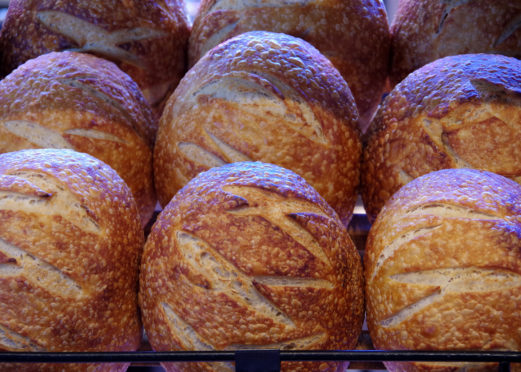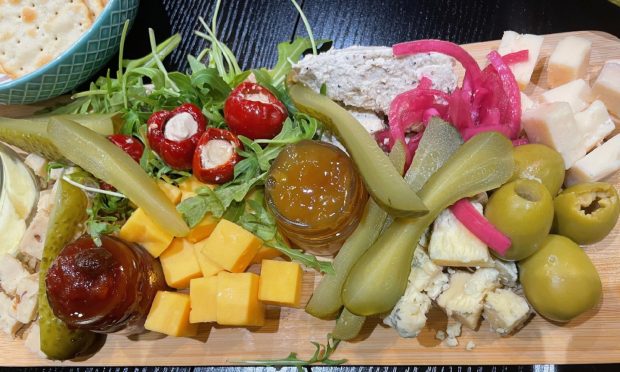Newport chef Jamie Scott explains the simple ethos behind his new artisan bakery in his home village
Now that dismal January is over, we can start looking positively into the year ahead, and for us as a business, that means opening our long-awaited bakery in Newport, our lovely little village by the Tay.
A few people have asked ‘why a bakery?’ The reason is very simple – I’m just looking for a more traditional and authentic experience when I walk into a bakery, I want the smell of sourdough being slapped around the mixer and the puffs of dust in the air when the bakers are kneading and rolling the dough into their shapes before baking. I want the sound of crisp crust and pastry crackling away, the sound of the oven door slamming on the next batch of puffed-up balls of dough ready for their steam, then hot bake. What I want is a truly sensory experience where everything tingles – from your nose, tongue and whatever else feels like it is walking into our bread paradise.
What I don’t think a lot of people realise is all the benefits that come with eating a great quality sourdough. Real sourdough is very simple, as befits a method that’s thousands of years old. You take some starter, refresh it with several times with its own weight of fresh flour and water and let this ferment for some hours until the yeast population has grown.
You use most of this dough to make bread by adding more flour, water and salt, and keep a little bit back as your starter for the next batch of bread.
Sourdough preparation improves nutrition by pre-digesting starches, making the bread more easily digestible, lowering insulin response and improving glucose tolerance. It also protects Vitamin B1 from the damage of the heat of baking and breaks down gluten, which may result in a bread that gluten-sensitive people can eat.
Commercial bread has preservatives. It’s the only way you could make a loaf of bread shelf-stable. Potassium bromate is an example – it’s banned in many countries as being seriously harmful to human health as well as carcinogenic.
Sourdough bread, on the other hand, naturally preserves itself! Throughout the process acetic acid is produced which inhibits the growth of mould. This makes the bread shelf-stable for up to five days at room temperature and a little longer in the fridge.
Chef’s tip
The most frightening thing when making your own starter is forgetting to feed it. You should aim to feed your sourdough starter once a week, but don’t worry too much if you forget. After a few weeks or months without feeding the yeast and bacteria populations will decline and the starter will go dormant. If it does go dormant don’t panic, the starter can be revived by adding more water and flour (30g of each) and leaving it to stand at room temperature for a day or so, until it starts to bubble.
If you’re prone to forgetting to feed your starter it might help to give it a name – it might sound strange but lots of sourdough bakers do this to help them remember.










